The need for meaningful change in business practice to deliver sustainability and equity is perhaps more pressing than ever. But persistent greenwashing undermines the wider understanding of sustainability, erodes trust, adds confusion and fuels cynicism.
“I’m not upset that you lied to me, I’m upset that from now on I can’t believe you.”
Friedrich Nietzsche
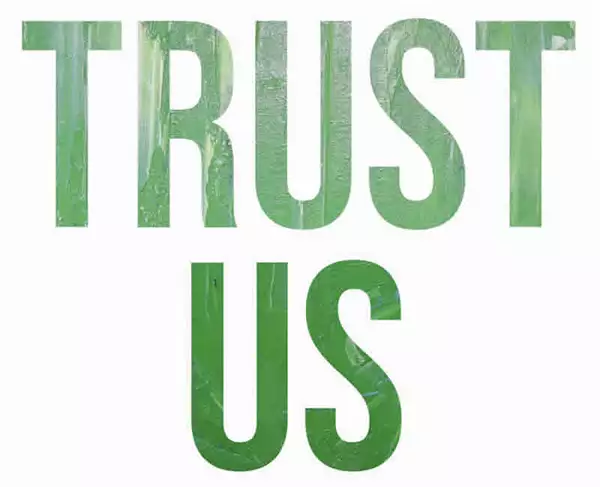
Greenwashing – undermining trust
The COVID-19 crisis has added momentum to the need for us to be able to trust who we buy from and what we buy.
Nielsen’s recent report Recalibrated consumption dynamics in a Covid-19 altered world noted that “Authenticity, trust and empathy have been the winning traits of those brands that remained ‘on air’ and relevant to consumers emerging needs”.
Edelman’s annual Trust Barometer Survey echoes and underlines this view. The 2020 Report found that overall, trust in our institutions is decreasing. But that people are increasingly looking for leadership from business to engage in and tackle social and environmental issues.
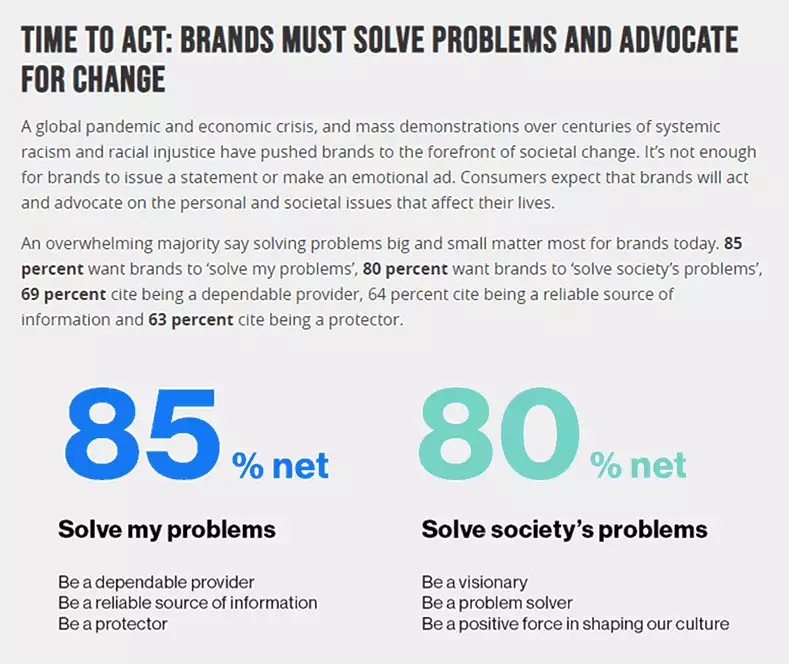
Given these findings, companies need to prove they are capable of being trusted. Central to their trustworthiness is firstly, the way that they make and justify claims about sustainability progress, and secondly, the characteristics and performance of their products.
There are two important aspects here.
Firstly, corporate statements of commitment and intent (often included in corporate sustainability or CSR reports); and
Secondly product-level claims. They are very different, and it is the latter that we focus on here.
However, the extent to which we should rely upon, and be able to trust, statements in corporate sustainability reports and disclosures, is also an essential component of meaningful sustainability.
Greenwashing at the product-level – feel good or feel true?
How can you know whether a statement or messages relating to the sustainability of a product is true?
This is the question at the heart of greenwashing. Greenwashing is a term coined in a 1986 essay by the environmentalist Jay Westerveld in which he claimed the hotel industry falsely promoted the reuse of towels as part of a broader environmental strategy. In fact, the act was designed as a cost-saving measure.
While it can legitimately (perhaps) be argued that the outcomes are just as important as the intent, greenwashing refers to a fundamental challenge – are the claims made for products and activities true and meaningful in the context of reduced environmental and social impact or product benefits? Or are they merely marketing or PR with no substance?
Greenwashing means that a claim is either not true, not relevant or intended to actively mislead the recipient as to the actual performance or characteristics of a product.
Spotting greenwash
But just what does greenwash look like? If you see any of the following terms or phrases in corporate communications or on product packaging, you are likely to be experiencing greenwashing:
- All our operations are environmentally friendly
- Green
- Nature’s choice
- 100% Sustainable
- Climate-friendly
- All natural
- People & Planet in harmony
What makes them greenwash? The simple answer is that none of them really mean anything or can be proved or justified.
The longer answer is that they lack context, legitimacy and comparability. In 2007 the characteristics and elements of greenwashing were characterised as the “Seven Sins of Greenwashing” by TerraChoice (now part of UL, see here).
The 7 sins are all forms of dissembling – either outright mistruths, or half/part truths intended to convey an impression that cannot be justified.
Types of greenwash
So what are the fundamental aspects you can use to assess and identify greenwash?
1. Just plain lying
This can take different forms, like claiming standards or certifications which have not been earned or falsifying audit documentation to support this. Often certified goods or materials command higher prices, so if you can ‘certify’ a shipment of cocoa/cotton/coffee to an environmental standard by fiddling the paperwork you can make an instant profit.
One of the most prominent recent examples would be Volkswagen’s emission cheating program. The carmaker fitted vehicles with software to cheat emissions testing programs – thereby enabling dirty vehicles that were not compliant to pass regulatory tests.

Another example of just plain lying would be to refer to or include a product label that doesn’t exist, or one that doesn’t actually require any sustainable change.
2. Misdirection
Most greenwash claims are focused on different forms of misdirection. It’s a separate category because some of these forms could be construed as making some valid (i.e. true claims) from a position of partial ignorance. Overall, the result is misdirection and untruth, but the motive can be less clear.
What does this look like?
Typically, being selective about specific aspects of origin or performance or characteristics. This often means making bold claims about particular positive aspects while ignoring other less palatable ones. Where the negative aspects manifestly outweigh the positive ones, you have classic misdirection.
Good examples of misdirection are those of making relative comparisons that are true in and of themselves, but don’t really mean much out of context. Another flavour is featuring positive aspects while ignoring significant negative ones.

Example 1 – you could claim that your latest SUV is 26% more efficient than another SUV. But this could still mean that it does 24 miles per gallon and the other one does just 19.
It’s a shame – neither is remotely efficient when compared to most other vehicles.
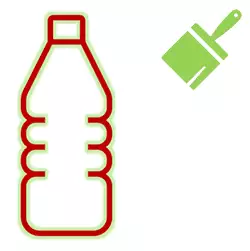
Example 2 – your bottled water is sustainable because the PET plastic bottle is made of less plastic than your competitors and includes 20% recycled plastic too.
It’s a shame – that the (heavy) filled bottles are transported thousands of miles using fossil fuels. Much more than the real, but small, saving in fossil resources.

Example 3 – organic olive oil soap (pun intended…). Your packet looks homely and rustic (it’s also green) and highlights the local provenance olive oil in the product.
It’s a shame – that there’s only a few percent olive oil in the recipe, the majority of which is palm-oil derived (with no provenance) or other petrochemicals. There’s also more water than olive oil and more Hexyl Cinnamal – which is toxic to aquatic life.

Example 4 – Bamboo socks. These are sustainable because bamboo is fast growing and doesn’t require pesticides or irrigation to grow.
It’s a shame – that the bamboo’s grown in China and has a large carbon transport footprint. Oh – and don’t forget the Carbon disulphide used to process the bamboo. It’s very toxic to workers and the environment (see Paul D Blanc’s Uncommon threads: fashion’s deadly fabric.
3. Meaninglessness
This type of greenwash refers to claims and statements that have no inherent meaning.
Environmentally Friendly
These might be ‘environmentally friendly’ – nothing that isn’t actively contributing to the health and diversity of the environment is friendly, some things might be less bad – but none of them are friendly.
It’s a bit like saying that low tar cigarettes are more ‘lung friendly’ than high tar ones, marginally less damaging perhaps, but not friendly.
All natural
‘All natural’, or ‘chemical free’ are similarly meaningless, natural things aren’t necessarily safe (many poisons are natural) and everything in the world is made of chemicals.
Biodegradable
‘Biodegradable’ is an often-abused term. It can be a good thing (and does in fact have definitions to support it). But its impact depends whether the substance in question properly degrades in real-world environments – and crucially what it degrades to. Some compounds biodegrade to other toxic substances.
Is greenwashing really damaging?
Greenwashing is damaging – at several levels.
Firstly, it’s inherently untruthful and undermines trust and reputation. If you’ve bought a product or service believing it to represent a low impact or ethical choice and it turns out to be the opposite – you have the right to feel let down, betrayed even.
But the impact of this bad behaviour goes wider. Because the most egregious false claims are often discovered and called out, there is a wider environment of distrust leading to widespread underreporting or ‘green modesty’ (where companies keep quiet about meaningful sustainability achievements).
Avoiding greenwash
So, if there are a multitude of ways to get it wrong, how can you make valid claims?
Some of simplest and most practical guidance for producing responsible message was produced by the UK Government’s guidance for environmental claims, which notes that legitimate claims are:
- Clear
- Accurate
- Substantiated.
But when it comes to assessing messages, whether they are ones you see on products or are thinking of putting on your own we have the following suggestions:
- Be sceptical – put yourself in the shoes of a critic – would you be able to defend the assertions and claims you have made?
- Be self-critical – put yourself in the shoes of a competitor, an NGO or a scandal-seeking journalist reading your messages. Are you still happy with them?
- Err on the side of caution – it is better to say less and be able to defend it, than say more that it would be difficult to support if challenged.
Sustainability-related performance and choices are often complex, nuanced and/or require inherent trade-offs between relatively less bad options. These are difficult to communicate in simple and positive messages that fit people’s valuable and limited attention spans.
Greenwashing is effectively the antithesis of following a materiality-based approach (focusing on all the important issues in your value chain). But if you follow these principles with care, you’ll be on the right side of the great greenwashing watershed.
Greenwashing – as regulators mobilise, what do marketers need to get right?
Greenwashing is insidious and widespread. It’s also harmful to your reputation, one of the main sources of value from taking meaningful action on sustainability issues.
And greenwashing is becoming a tidal wave.
So how should marketers and other professionals tackle this?
What is Greenwashing? Why it matters and how to avoid it
The need for meaningful change in business practice to deliver sustainability and equity is perhaps more pressing than ever. But persistent greenwashing undermines the wider understanding of sustainability, erodes trust, adds confusion and fuels cynicism.
Certified Greenwashing – Real Greenwash Kitemark
To-date, claiming environmental credentials has been somewhat of a niche activity. But now that consumers, governments and even a few companies are waking up to the power of blah blah blah – greenwashing really has gone mainstream.
There’s so much activity it can be difficult to keep up and not be overwhelmed with who’s claiming what and on what basis – or perhaps more importantly – what lack of basis.
It’s time to get professional. So, we’re pleased to announce the new Real Greenwash KitemarkTM.
Greenwashing – turning up the heat on green claims
Greenwashing is getting dangerous – regulators, customers and consumers have increasing expectations regarding access to good quality, consistent information on sustainability, whether it is about a company’s overall performance, or about specific aspects of a product and how it compares to others. This article explores the context and what you need to consider while attempting to meet growing customer expectations and increasingly fierce regulators.

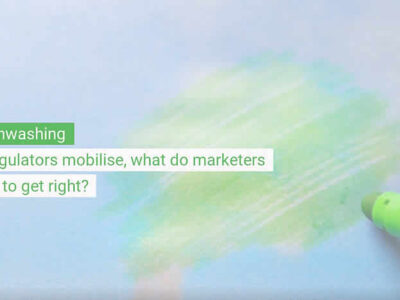
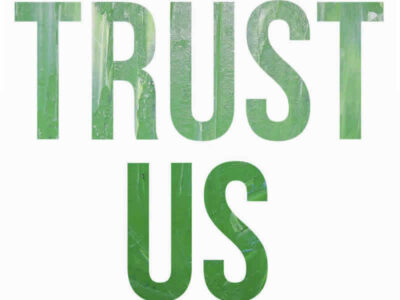
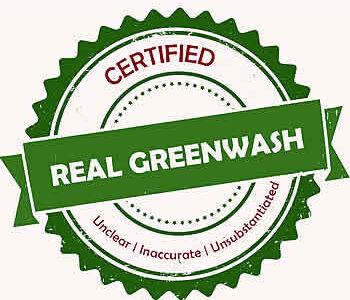
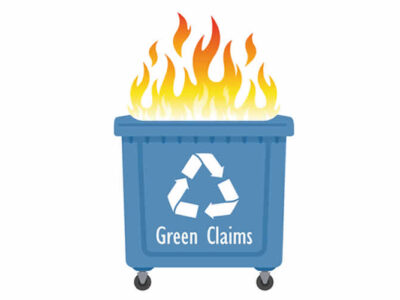
 Thought Leadership in Sustainability
Thought Leadership in Sustainability
Leave a Reply